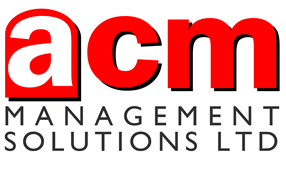
Asbestos Management Consultancy & Workplace eLearning Providers

Asbestos Management Consultancy & Workplace eLearning Providers |
 |
 |
Approved by IIRSM & CPD This course is aimed at anyone who uses abrasive wheels, or employs people who use abrasive wheels as part of their work. It covers different types of abrasive wheel, safety in their use and how to identify the type of wheel. |
|
 |
Achieving Food Hygiene Rating Level 5Approved by CPD This course is intended to give you an overview of how the National Food Hygiene Rating Scheme works, what the scoring criteria are and how these are assessed by the inspectors, the appeals process, the Safer Food Better Business management system, E-Coli and concludes with some practical advice for ensuring your premises gets the best score possible. |
 View PDF about course |
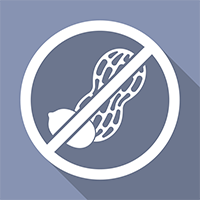 |
Allergen Awareness
Approved by CPD & RoSPA This course covers general allergies, food allergies and food intolerances and explains the differences between them. It covers the 14 allergens controlled by legislation along with food additives and how they can trigger allergic reactions. It takes a detailed look at the symptoms of food allergies and takes in the wider picture discussing the current theories of why rates are increasing. It then finishes off by covering practical steps that can be taken to reduce the risk from allergens and also what steps can be taken both internally and externally to monitor the control measures. |
|
 |
Approved by RoSPA & IATP
|
|
 |
Asbestos Awareness for Architects and Designers Approved by RoSPA & IATP As well as informing you about the risks of working with asbestos, the course will deliver a lot more information about: Recognising asbestos, where it's used, minimising the risks and the legislation about working with asbestos. This course is a variation on the Asbestos Awareness course that contains specific information for designers and architects. |
|
 |
Assessing Display Screen Equipment Approved by IIRSM This course is aimed at companies who employ users of display screen equipment, or DSE as it's often called and is intended to be completed by those who will be assessing the DSE set ups of employees. DSE is a term that covers a wide range of equipment. If equipment like this is not set up correctly, users are at increased risk from certain disorders |
|
 |
Approved by RoSPA, IFE & CPD This course explains, in brief, why fires occur and what actions you must take to help prevent them starting and the actions you must take when they do. By completing this course you will be making your workplace a safer environment. |
|
 |
Basic Fire Safety Awareness for Care Homes Approved by RoSPA, IFE & CPD This course explains, in brief, why fires occur and what actions you must take to help prevent them starting and the actions you must take when they do. By completing this course you will be making your workplace a safer environment. |
|
 |
Approved by RoSPA This course explains the background to Legionella, the potential risks associated with water systems and how these can be prevented or controlled. It helps you to understand the risk that Legionella poses and helps you develop the systems and working practices you need to stay ahead. It gives you enough knowledge to get a Legionella control programme off the ground yourself – or make confident, informed choices when commissioning others to take this on for you. |
|
 |
Approved by IIRSM This course defines behavioural safety and explains the origins of the concept. It covers how it can be implemented in the workplace and some of the potential benefits. It includes analysis of some examples of 'at risk behaviours' and some examples of ways you can measure how well your organisation is doing when it comes to safety. Finally it touches on some of the key laws regarding health and safety in the workplace and how to ensure positive workforce attitudes |
|
 |
Approved by IIRSM This awareness course covers the core concepts of the regulations and details the various roles that are required for a construction project along with the key documents that need to be produced. It starts with an introduction to CDM, then covers some of the parameters that need to be checked when a project is being planned. It finishes by detailing a number of example projects that illustrate how the regulations can be applied. |
|
 |
Control of Substances Hazardous to Health (COSHH) Approved by IIRSM This course covers what you need to know about the Control of Substances Hazardous to Health. It's aimed at anyone who is exposed to Substances Hazardous to Health at work, as well as line managers with responsibility for such people. |
|
 |
Display Screen Equipment Awareness Approved by IIRSM This course is aimed at users of display screen equipment, or DSE as it's often called. DSE is a term that covers a wide range of equipment. If DSE equipment like this is not set up correctly, users are at increased risk from certain disorders. As an employee, you share the responsibility to keep people safe at work. That means undergoing relevant training and ensuring that rules are followed. |
|
 |
Approved by IIRSM This course will start by covering the many benefits electricity brings to society, as well as its key components voltage, current and resistance. It will explain the two main types of electricity, cover UK accident and death statistics, and describe a simple way of remembering the electrical hazards. It then goes on to provide basic instructions about how you could safely help someone you suspect has received an electric shock. |
|
 |
Emergency First Aid at Work - Online Annual Refresher Approved by IIRSM This Emergency First Aid Refresher course will highlight some of the most common situations that you might come across and the actions that you can take to help. |
|
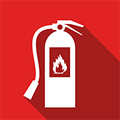 |
Approved by RoSPA & CPD Learn how to identify the different types of fire extinguishers that might be installed within your workplace and what situations they might be used in. At the end of the final module you will be presented with a simulation that will test what you've learnt. |
|
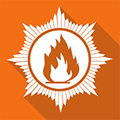 |
Approved by RoSPA & CPD The main outcome of this training course is to provide you with the knowledge to carry out the functions of a fire marshal. - Please note, this course also contains all of the content in the Basic Fire Awareness and Fire Extinguisher courses. |
|
|
Approved by RoSPA & CPD The main outcome of this training course is to provide you with the knowledge to carry out the functions of a fire marshal. - Please note, this course also contains all of the content in the Basic Fire Awareness and Fire Extinguisher courses. This course is a variation on the Fire Marshal course that contains information that is specific to employees of care and residential homes. |
||
 |
Approved by RoSPA & CPD This course will start by covering some of the key terms you will need to understand before moving on to identifying critical control points and analysing some of the key hazards. It'll show you how to determine control points and how to avoid cross-contamination in the food chain. It will also cover some of the control measures that can be taken along with how to address a problem if a critical limit is breached |
|
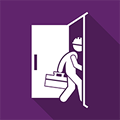 |
Introduction to Personal Safety for Lone Workers Approved by IIRSM This course acts as an introduction to personal safety for lone workers and applies to those that work alone within business premises, mobile workers and homeworkers. It covers the legal responsibilities of both employers and employees, some of the common security precautions that can be implemented, practical steps you can take to avoid conflict in lone worker situations and other elements that can contribute to lone worker safety. |
|
 |
Introduction to Risk Assessment Approved by IIRSM At the end of this course, candidates will have an understanding of what a risk assessment is and how to complete one. To achieve this the course will define important terms, provide some basic background information to explain how important risk assessments are and discuss some of the legislation that applies. It will then go on to provide practical advice on how to identify hazards and analyse risk before finishing off by explaining the responsibilities of both employers and employees with regards to risk assessment. |
|
 |
Level 1 Food Safety - Catering Approved by RoSPA & CPD Food safety combines a number of practices to reduce health hazards. These include premises hygiene, personal hygiene, risk control, pest control and waste management. This level 1 course is about minimising the level of potential hazards in a food catering setting. |
|
 |
Level 1 Food Safety - Manufacturing Approved by RoSPA & CPD Food safety combines a number of practices to reduce health hazards. These include premises hygiene, personal hygiene, risk control, pest control and waste management. This level 1 course is about minimising the level of potential hazards in a food manufacturing setting. |
|
 |
Approved by RoSPA & CPD Food safety combines a number of practices to reduce health hazards. These include premises hygiene, personal hygiene, risk control, pest control and waste management. This level 1 course is about minimising the level of potential hazards in a food retail setting. |
|
 |
Level 2 Food Safety - Catering Approved by RoSPA & CPD Food safety combines a number of practices to reduce health hazards. These include premises hygiene, personal hygiene, risk control, pest control and waste management. This level 2 course is about minimising the level of potential hazards in a food catering setting |
|
 |
Level 2 Food Safety - Manufacturing Approved by RoSPA & CPD Food safety combines a number of practices to reduce health hazards. These include premises hygiene, personal hygiene, risk control, pest control and waste management. This level 2 course is about minimising the level of potential hazards in a food manufacturing setting. |
|
 |
Approved by RoSPA & CPD Food safety combines a number of practices to reduce health hazards. These include premises hygiene, personal hygiene, risk control, pest control and waste management. This level 2 course is about minimising the level of potential hazards in a food retail setting. |
|
 |
Approved by CPD This course will start by introducing the learning outcomes and role of the lockdown officer, then discuss some of the likely reasons for a lockdown, go over some of the steps you can take to prepare your school for lockdown as well as what to do in the event of a lockdown taking place. |
|
 |
Approved by IIRSM &CPD This course outlines exactly what constitutes manual handling and covers the regulations and legislation that apply to manual handling tasks. It then goes on to cover safe handling techniques and how to develop good habits in relation to manual handling. It finishes off by introducing some practical solutions and the use of mechanical aids.Important note: Please note that this is an awareness course only, if your duties include manual handling you will also need further practical training, you can get in touch with us to arrange this. |
|
 |
Noise Awareness
Approved by IIRSM |
|
 |
Positive Handling in Schools Approved by CPD Duration 100 mins* CPD Units: 3 This course will start by looking at some examples and statistics which highlight the seriousness and extent of aggressive pupil behaviour, it will then go on to explain how you can identify the stages of aggression and provide some tips on how you could de-escalate a pupil before they lash out. It also looks at where the law stands on this subject and finally best practice in theory if you ever do need to restrain a pupil. |
|
 |
Prevent Duty This course starts with an overview of the Government's Prevent strategy, and then looks at some of the reasons people become extremists. It goes on to cover the objectives of the Prevent strategy, how to base your actions on a risk based approach, what to do if you are concerned and much more. |
|
 |
Approved by CPD This course is aimed at anyone who has a duty of care for, or comes into contact with, adults in need of care and support, either as a paid professional or a volunteer. You and the organisation you work for must take appropriate measures for the protection of adults in your care, while still ensuring they are supported and empowered. This course can bring you one step closer to being able to do this |
|
 |
Approved by CPD Safeguarding is a term that describes the work and processes undertaken to minimise and manage the risks involved to vulnerable children. During this training video you will hear many facts, figures and details surrounding the risk to children, the types of abuse suffered, how to recognise the signs of abuse and key safeguarding legislations put in place to minimise the abuse of children. |
|
 |
Approved by IIRSM This course will introduce you to some of the statistics relating to slips, trips and falls and dispel some of the myths surrounding them. It also touches on the law as it relates to slips, trips and falls. It contains real examples of where things have gone wrong and some practical steps that could have been taken to prevent these incidents. The course also covers some of the straightforward changes that can be made in most businesses to significantly reduce the risk of a slip, trip or fall incident occurring |
|
 |
Approved by RoSPA This course is aimed at anyone who undertakes work at height, or who employs people who regularly work at height. It covers what constitutes work at height, the safety issues, and how to assess and reduce some of the risks.Important note: Please note that this is an awareness course only, if your duties include working at height you will also need further practical training, you can get in touch with us to arrange this. |
|
 |
Approved by IIRSM This course will cover the legislation associated with working in confined spaces. What constitutes a confined space, the potential hazards, safe operating procedures, and emergency procedures and rescue.Important note: This is an awareness course only, designed for people who need to be aware of the hazards and risks of confined space working but are not required to enter a confined space. If you are required to perform any work activity in, or in the proximity of, a confined space then you will also need to have an 'approved' standard of practical training at the 'appropriate' level. |
|
 |
Approved by RoSPA & IIRSM Working safely is in the interest and concern of all staff, both employers and employees. Health and safety is one of the few areas where the law places specific duties specifically on employees so a knowledge of where this applies and how to ensure that it is adhered to is vital to protect individuals and businesses. The course covers a wide range of topics including fire safety, asbestos awareness, working at height, COSHH, PPE and electricity. It also covers schemes for improving safety performance and methods of protecting the environment. |
|
 |
Working Within the Private Security Industry Duration 90 mins* This course is an introduction to the private security industry, and the main services it covers. It discusses the body which regulates the industry, highlights the standards of behaviour expected from security operatives, and the law as it relates to the industry. It includes an in-depth look at health and safety issues, the concept of duty of care and examines a range of emergency situations which security operatives might be involved with. The course also covers communication skills, including tips for effective radio communication and instructions on how to use the phonetic alphabet. |
|
 |
Approved by IIRSM At the end of this course you will have an understanding of health and safety legislation and you'll be able to list common causes of accidents. You'll also be able to understand good practice in relation to electricity and describe the use of safe manual handling techniques as well as be able to describe good practice associated with COSHH regulations, be able to describe your action in the event of a fire and also you will know how to deal with an accident. |
|
|
| Our RoSPA, IATP, IFE, IIRSM & CPD approved courses are owned by VideoTile Learning Ltd and are distributed under licence. Copyright VideoTile Learning Ltd © 2011 - 2019 - Problems viewing the video? Click Here | Privacy Policy |